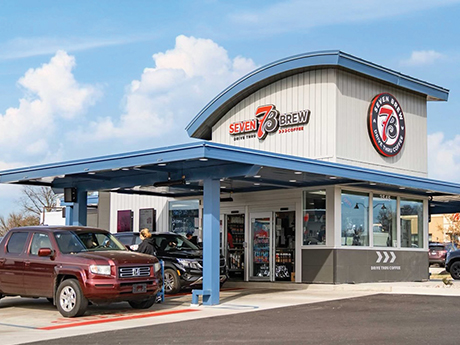Louisville’s economy remains resilient, and regional economic growth is creating a strong foundation for the retail market. Greater Louisville Inc. recently announced that 72 businesses are considering relocating or expanding to the region, with the potential of 8,200 new jobs and $3.8 billion in economic investment.
Louisville is well-positioned for growth and the retail outlook remains strong with historically low vacancy rates. The market’s expanding consumer base and resilient economy have mostly overcome headwinds such as interest rate fluctuations, volatility in capital markets and signs of a slowing economy. This resilience has put Louisville in a strong position moving into the last quarter of 2024.

At the end of the second quarter, Louisville’s vacancy rate stood at a strong 3.4 percent, outperforming the national benchmark of 4.1 percent, according to CoStar Group. The limited amount of new retail construction over the past 18 months has played a significant role in keeping the vacancy rate low. In fact, only roughly 322,000 square feet of retail space has been delivered over the past 12 months.
Grocers are pushing leasing activity, making up 36 percent of the leasing volume that past 12 months. These retailers are executing most of the activity in spaces sized 20,000 square feet and larger. Publix has been the star, opening its first store in Kentucky along Old Henry Road and announcing two additional stores soon. Kroger has kicked off new store growth with an expected opening in mid-September in east Louisville. The grocer has two more stores in the planning stages in the market. Additionally, BJ’s Wholesale Club purchased the former Sears box on Outer Loop and has a projected opening date of second-quarter 2025.
Restaurants and QSRs (quick-service restaurants) represented a notable share of leasing activity, making up 25 percent over the past 12 months. These retailers comprise more than half of the activity for leases sized 3,000 square feet and below. New-to-market QSRs and restaurants include Capital Grille, Jack in the Box, Walk-On’s Sports Bistreaux and Twin Peaks. 7 Brew Coffee has opened eight new locations in the Louisville market over the past 18 months, with two more expected before the end of the year.
Following this trend are retail projects such as Jeffersonville Towne Center. The retail center, developed by The Koetter Group, is located on more than 160 acres along Veterans Parkway in Jeffersonville, Ind. The success in the development and leasing of this project shows the desire of retailers to enter the market. The related success of retailers since its opening — including McDonald’s, 7 Brew Coffee, Chipotle, Drake’s Come Play and Academy Sports + Outdoors — shows the demand of consumers in the market for additional goods and services.
Stern Development’s project along Preston Highway and Maple Springs Boulevard is in another trade area that continues to evolve. The impact has been great on the community and satisfies an underserved trade area. This development is the only project south of I-265 with direct access to Preston Highway. Tenancy includes Thorntons, Mike’s Car Wash, Chick-fil-A and 7 Brew Coffee, plus more development in the planning stages. This project is firmly in the heart of a new growth hotspot where retailers are reporting high sales volumes. For instance, Wawa’s first store in the Louisville market is in this corridor.
Convenience stores and gas stations are also increasing throughout the market. Wawa has one store under construction plus another six announced projects. Each store represents an investment of $7.5 million. Wawa’s end goal is to have a total of 40 stores around Kentucky and southern Indiana. QuikTrip and RaceTrac are also making additional investments into the greater Louisville MSA.
Over the next 18 months, the market will see new development and leasing opportunities. Grocery-anchored developments will create opportunities for outparcels, junior-anchored boxes and small shop leasing. Additionally, as stores close or retailers leave the market, there will be second-generation opportunities to backfill previous tenants.
We’ve lived in Louisville during a period of impressive and ongoing growth over the past 10 to 15 years. Given the continued positive economic outlook for the region and current trend of people moving to lower-cost cities, we can expect even faster growth in the market in the years to come.
— By Casey Smallwood, Senior Vice President and Managing Principal, SRS Real Estate Partners. This article was originally published in the September 2024 issue of Southeast Real Estate Business.


